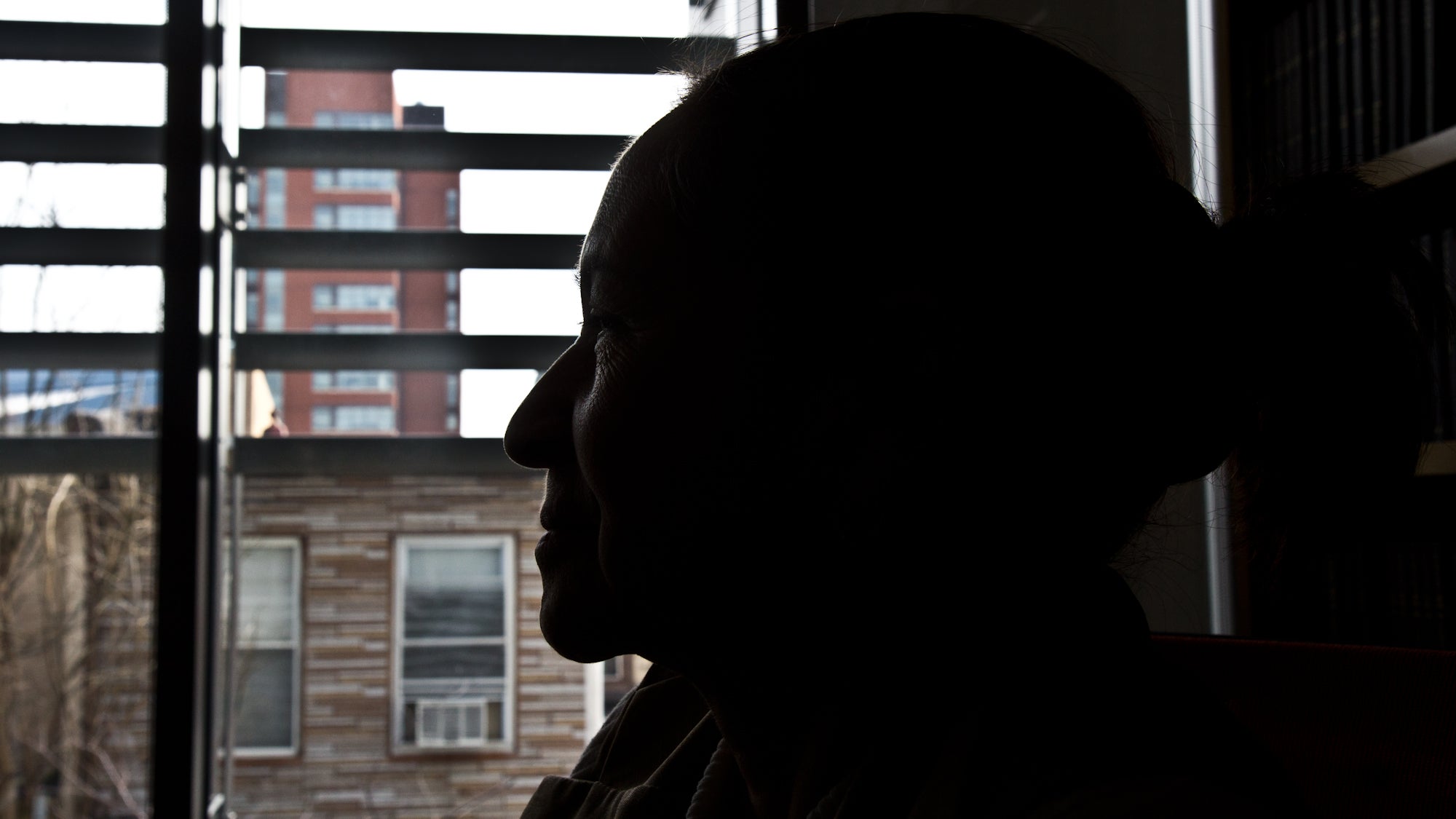Maria: A struggle to gain legal status, keep her family together
Listen 3:25
Maria immigrated from Guatemala 22 years ago. She says that when she moves, she reports her new address to ICE. (Kimberly Paynter/WHYY)
“Life, unauthorized” is a series from WHYY/NewsWorks that looks at the personal immigration stories of individuals who are living in the Philadelphia region without legal status.
—
Maria, 58, from Zacapa, Guatemala
Guatemala’s brutal 36-year civil war ended in 1996. Repressive government forces battled guerilla groups in a conflict that began as an uprising against poverty and oppression. About 200,000 Guatemalans, mostly indigenous Mayans, died a war that some have called a genocide.
Lingering poverty drove Maria to leave Guatemala in 1994.
“I was working and working and working in Guatemala and never had extra money to treat my kids to anything and give them a better life,” Maria said. “So I decided to come here and give them a better life. I wanted to give them the famous American Dream.”
Maria fled to the United States “like everybody else does,” she said, “through Mexico.” She paid a “coyote” $1,400 to smuggle her over the border in the back of a truck. After a week of furtive travel, she arrived in Philadelphia on a Saturday — and by Monday morning she was working, picking flowers for the same company where her brother and sister-in-law worked, to send money back to her husband and four children in Guatemala.
Her husband and two oldest children, then 14 and 16, snuck into the United States the same way soon after. But her two youngest, then 7 and 11, didn’t come right away, staying behind with Maria’s sister-in-law.
“It was too dangerous,” Maria said.
She talked to them on the phone once a week. But 12 years passed before she saw them again. By the time they joined the family in Philadelphia, they were adults. Maria had missed milestones like their high-school graduations, as well as all the everyday ups and downs of childhood. That absence made their eventual reunion a bit rocky, although time has softened such wounds, she said.
Maria has unsuccessfully applied for political asylum and work permits several times since then.
Living in a predominantly Spanish-speaking neighborhood, she never learned English. She hasn’t had many of the problems other unauthorized immigrants report: She got a Social Security card (“not my number, but nobody else’s either,” she says) and a driver’s license. She also got a factory job that offered steady raises over 16 years; she was making $13.75 an hour by the time she got laid off recently. She had health insurance through her employer. She now babysits a few hours a week and is hunting for full-time work.
She had a fifth child since moving to the United States and now has four grandchildren here.
“I’ve been through a lot, but I’ve also been blessed with a whole lot of stuff that I needed, when it comes to work and being able to provide for my family,” she said. She’s still trying to get documentation to stay here legally, because she’d like to travel back to Guatemala to visit her aging, sickly parents.
She doesn’t regret her decision to risk her life to get into the U.S., because the family is all together now, and she is happy. “In Guatemala, there is so much violence, but here, I am able to live with my family in peace.”
Still, that peace is precarious. Maria is raising her 11-year-old grandson, who lost both parents in a traumatic incident five years ago. Getting deported now could mean leaving another young child behind.
In her words: The possibility of being separated from her family again
“I want to stay here. This is where I belong.
“I am extremely worried [about heightened immigration enforcement], but in a way, I’m also a bit relieved, because my son just turned 18. So I don’t have to worry about him being taken from me. And he was born here [so he’s a citizen not subject to deportation]. But also I’m afraid for other mothers that have young children, the separation of a mother from her child. They don’t understand how hard it is for us just to be separated or to know that your child is being taken from you because of these laws.”
WHYY is your source for fact-based, in-depth journalism and information. As a nonprofit organization, we rely on financial support from readers like you. Please give today.




